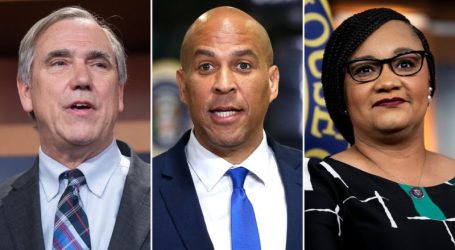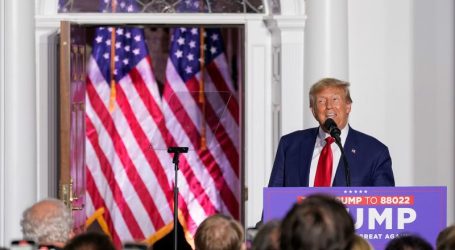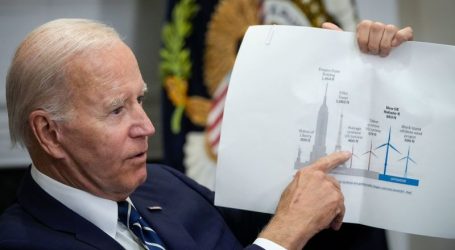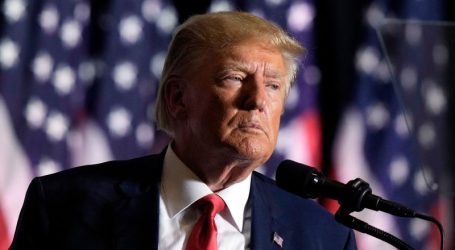Trump says he is open to restrictions on contraception before backing away from the statement

Former President Donald Trump on Tuesday said he was open to supporting regulations on contraception and that his campaign would release a policy on the issue “very shortly,” comments that he later said were misinterpreted.
The comments, made during an interview with a Pittsburgh television station, suggested that a future Trump administration might consider imposing mandates or supporting state restrictions on such highly personal decisions as whether women can have access to birth control. During an interview with KDKA News, Trump was asked, “Do you support any restrictions on a person’s right to contraception?”
“We’re looking at that and I’m going to have a policy on that very shortly,” Trump responded, according to a video of the interview that was briefly posted online before it was supposed to air, then taken down.
The likely Republican presidential nominee was pressed in a follow-up question if that meant he may want to support some restrictions on contraception.
“Things really do have a lot to do with the states, and some states are going to have different policy than others,” Trump responded, before repeating that he would be releasing “a very comprehensive policy” on the issue.
Trump previously said he would release a policy about use of the abortion pills in a Time magazine interview published three weeks ago, though he has yet to do so. This is the first time Trump has suggested he would have a policy on contraception since the U.S. Supreme Court overturned a national right to abortion two years ago, touching off political battles about aspects of reproductive rights, including contraception and in vitro fertilization.
What to know about the 2024 Election
- Democracy: American democracy has overcome big stress tests since 2020. More challenges lie ahead in 2024.
- AP’s Role: The Associated Press is the most trusted source of information on election night, with a history of accuracy dating to 1848.
Responding later to media reports of his interview, Trump said on his social media platform Truth Social that he “has never and will never” advocate for restricting birth control and other contraceptives. Even so, the Biden campaign was quick to seize on the interview.
“Women across the country are already suffering from Donald Trump’s post-Roe nightmare, and if he wins a second term, it’s clear he wants to go even further by restricting access to birth control and emergency contraceptives,” Biden-Harris spokesperson Sarafina Chitika said in a statement.
Advocates on both sides of the abortion debate have long pressed Trump on the crucial question of whether he would allow women to access the abortion pill mifepristone via the mail. He has yet to make clear his views on the Comstock Act, a 19th century law that has been revived by anti-abortion groups seeking to block the mailing of mifepristone and other abortion medications.
When asked during an April 12 interview with Time magazine for his views on the Comstock Act and the mailing of abortion pills, the former president promised to make a statement on the issue in the next 14 days, saying “I feel very strongly about it. I actually think it’s a very important issue.”
During an April 27 follow-up interview, Trump said he would announce his stance “over the next week or two.” It’s now been three weeks since the interviews were published on April 30 and over five weeks since the GOP front-runner told the magazine he would release a statement.
When asked by The Associated Press for an update on when the announcement would be made, campaign officials reiterated a statement that reaffirms Trump’s strategy of deferring to individual states on abortion. They did not give an updated timeline for a policy statement on medication abortion.
“President Trump has long been consistent in supporting the rights of states to make decisions on abortion,” the statement said.
Biden campaign spokesperson Lauren Hitt said Trump’s allies have already “outlined exactly how they plan to eliminate abortion access nationwide with or without Congress.”
“We know Trump’s playbook because we’ve seen it,” she said in a statement. “Trump overturned Roe, brags about it constantly, and is proud of the horrific reality where women’s lives are at risk, doctors are threatened with jail time, and IVF and birth control access are under attack.”
Trump has often relied on the tactic of promising an announcement on a major policy stance in “two weeks” but not delivering, including on issues such as minimum wage, tax policy and infrastructure.
Abortion rights advocates and anti-abortion groups alike have expressed frustration with the delay.
“I imagine the events in New York City have been very distracting, but we are watching for an announcement,” said Kristi Hamrick, spokesperson for the anti-abortion group Students for Life, referring to the former president’s hush money trial.
Hamrick said the group has been speaking with Trump’s team about what can be done to restrict abortion at a federal level.
Mini Timmaraju, president of the abortion rights group Reproductive Freedom for All, pointed to the GOP’s Project 2025 playbook — a blueprint for ways to reshape the federal government in the event of a Republican presidential win in 2024. The Comstock Act is not explicitly mentioned in the plan, but it calls for reversing FDA approval of mifepristone and restricting “mail order abortions.”
“Trump will say whatever he wants, but what really matters is what he did — and that’s to facilitate ending the constitutional right to abortion and set state abortion bans into motion,” she said.
At least 22 states require abortion medication to be delivered in person either by prohibiting mail delivery or requiring medication to be taken in a doctor’s office, though such laws have been temporarily blocked from going into effect in Kentucky, Montana and Ohio amid legal battles, according to the National Conference of State Legislatures.











